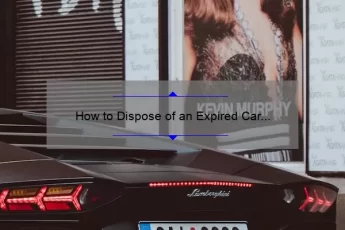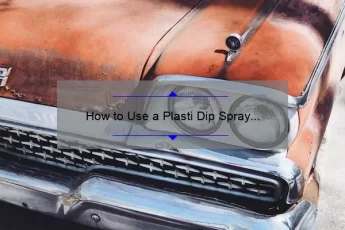If you are considering converting your car to run on E85 fuel, there are many things you should consider. These factors include performance, cost, and approval. After reading this article, you will have a better idea of the best option for your vehicle. However, before you begin, make sure that it will run without any trouble.
Convenience
There are several benefits to running E85 in your car. First of all, it offers the highest octane rating of any fuel on the market, allowing you to use more advanced spark timing and boost pressure to maximize engine performance. Secondly, it burns cooler than conventional gasoline, ensuring that the engine runs cleaner and more efficiently. This lowers the risk of carbon fouling, which can cause loss of power.
While E10 and E85 are compatible fuels, a very small number of vehicles are capable of running E85. The only vehicles that can run E85 are those that are flexible fuel cars, and are equipped to handle them. Because E85 is more corrosive than gasoline, the fuel system will need some upgrades to run efficiently.
E85 is significantly cheaper than traditional gasoline. E85 typically costs between 15 and 20% less per gallon. However, it will lower your vehicle’s MPG by up to 25 percent. Despite the lower MPG, most vehicles will still save money by burning E85 blends. And because E85 is produced from renewable resources, it is often much cheaper at the pump.
Moreover, E85 can eliminate America’s dependency on foreign oil, which reduces crimes, terrorist acts, and wars. However, there are a few disadvantages to running E85 in any car. The first drawback is that you need to buy more E85 fuel than you would with regular gasoline. It also requires more frequent fill-ups.
As E85 has become a popular fuel, it has limited availability at gas stations. The fuel is primarily found in the Midwest and larger cities, while small towns and rural areas may have limited access to it.
Cost
The cost of running E85 in any car can be very low compared to other alternative fuels. This is because the cost of engineering a car to run on E85 is significantly less than engineering it to run on diesel. However, there are still some costs involved in this process.
The cost of running E85 in a car is about the same as that of regular gasoline. On average, a gallon of E85 costs $2.85, while gasoline costs $4.22. So, if you were to buy a car that uses E85 and refuel it on a regular basis, you would save 32% on fuel costs. But the price of E85 could rise or fall with the price of gasoline.
Using E85 is an important step for saving money and helping the environment. Ethanol is produced from corn and reduces greenhouse gas emissions. It also reduces our dependence on foreign oil. As a result, it’s better for the environment to use higher blends of ethanol in gasoline.
E85 fuel is not as easy to handle as regular gasoline. It takes longer to start, especially in colder weather, and it requires more time to idle. Without letting it idle, it can result in poor performance and high emissions. Furthermore, it lacks lubricity, which creates additional challenges.
While e85 is not available for every car, many are willing to consider it. The cost of running E85 is lower than premium gasoline and can be a great option for car owners. In addition to saving money, E85 can also boost the power of your car.
Performance
Whether you have a classic muscle car or a new sports car, you can boost the performance of your engine by using E85 in your engine. The high octane content of E85 helps your engine run more efficiently and resist knocking, extracting more power from the engine. Performance kits that can be used with E85 can allow you to choose a high performance tune or to create a custom tune for your car. They can increase horsepower by as much as 20%, depending on the engine tuning.
In addition to giving your car more power, E85 has significant cooling effects that improve the performance of your engine. This lowers the temperatures inside the combustion chamber, allowing for a safer operating environment for high-performance engines. It also helps lower the intake air temperature, which can increase horsepower.
E85 also has a higher latent heat of evaporation than traditional pump gas. This means that it absorbs more heat from the combustion charge and can be used with more boost and compression than regular gas. As a result, knock will be less likely to occur and E85 will help you tune your car to your satisfaction.
Another way to increase the performance of your car with E85 is to install a flex-fuel sensor and upgrade the high-pressure fuel pump. These two upgrades will increase the amount of fuel that your car can burn, which will increase fuel efficiency and save you money. These upgrades are necessary if you want to see real results with E85, as E85 is 30 percent lighter than regular gas.
E85 is a cost-effective alternative fuel that offers high performance when used in boosted applications. It is also more readily available than race gas in many parts of the Midwest.
Approval
While most automobiles are designed to run on regular gas, a majority of new cars come with approval for E15 fuel. The Renewable Fuels Association (RFA) has analyzed automobile models through 2022, and 96 percent of them will be able to run on E15 fuel. However, there are a few exceptions. For example, the Volvo and Mitsubishi vehicles are not approved to run on E15, and some other manufacturers are not even allowing consumers to use the fuel.
Although the Environmental Protection Agency (EPA) approved the use of E15 fuel in 2012, there are still some concerns that using it in a vehicle may accelerate engine wear. Some automakers and technicians have said that E15 may lead to more engine failures. One study by the Coordinating Research Council shows that two out of eight engines were damaged by using E15 during a 500-hour durability cycle. However, the Renewable Fuels Association (RFA) claims that no engines were damaged in a similar study.
Ethanol is a type of grain alcohol that has several advantages, including lower fuel cost. It can also reduce emissions and increase vehicle power. It is easy to use and can improve your car’s mileage by 25 percent or more. The fuel is also available in more than three thousand filling stations across the United States. You can find a station near you by using the Alternative Fueling Station Locator.
If you’re planning to use ethanol in your car, be sure to follow the manufacturer’s instructions. Some cars are already approved to run on E85. However, there are some restrictions. You may need to check with the manufacturer’s manual to see how much E85 your car can handle.
Cautionary notes
E85 is an alternative fuel that can be used in cars. Its use can improve engine performance and efficiency. It also has significant cooling effects. These can help lower combustion chamber temperatures, which is important in high-performance engines. The added cooling also helps lower intake air temperatures, which in turn can increase horsepower.
If you want to run E85 in your car, be sure to follow the manufacturer’s instructions. First, make sure that your car is built for it. It will need a special fuel system that is specifically designed for this fuel type. This includes larger injectors, a high-volume fuel pump, fuel lines compatible with E85 fuel, a flex fuel sensor, and engine calibration.
Another consideration is octane. E85 has a higher octane rating than standard gasoline, typically between 91 and 105. Most premium gasoline only has a 91-93 octane rating. The higher octane content will allow you to run your car at higher boost pressures and ignition timings, reducing the chances of detonation.
The same precaution applies to vehicles that do not have a flex fuel system. Because ethanol is water-soluble, it can cause serious damage to vehicles that are not designed for it. For example, if you are driving an old Corvette and try running E85 in it, you’ll be putting more water into the fuel system and accelerated corrosion. You should check your owner’s manual to make sure your car can handle the fuel blend before trying it.
Running E85 in your car is a great way to save money and get the most out of the fuel you’re paying for. It has a lower price per gallon than premium gasoline and is safer for your engine.








